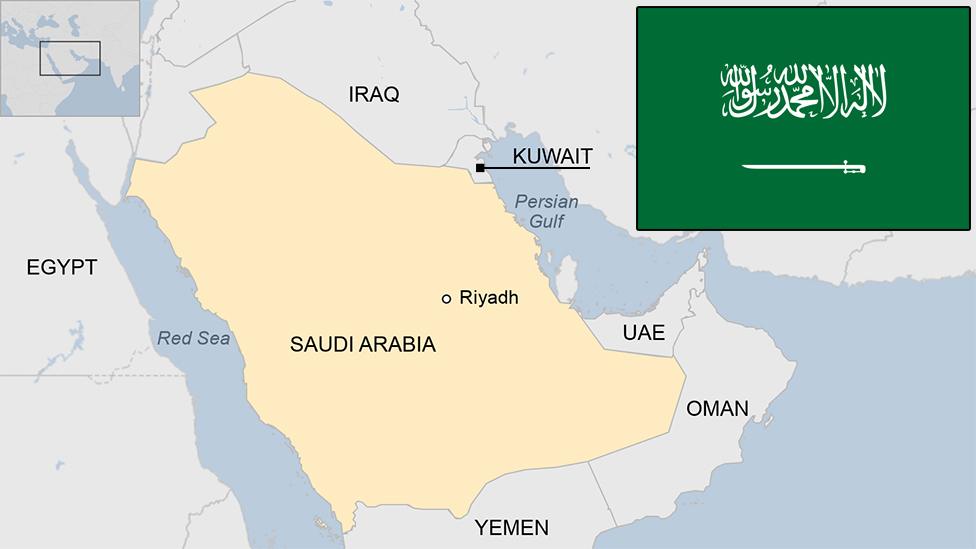Jamal Khashoggi: Turkey says journalist was murdered in Saudi consulate
- Published
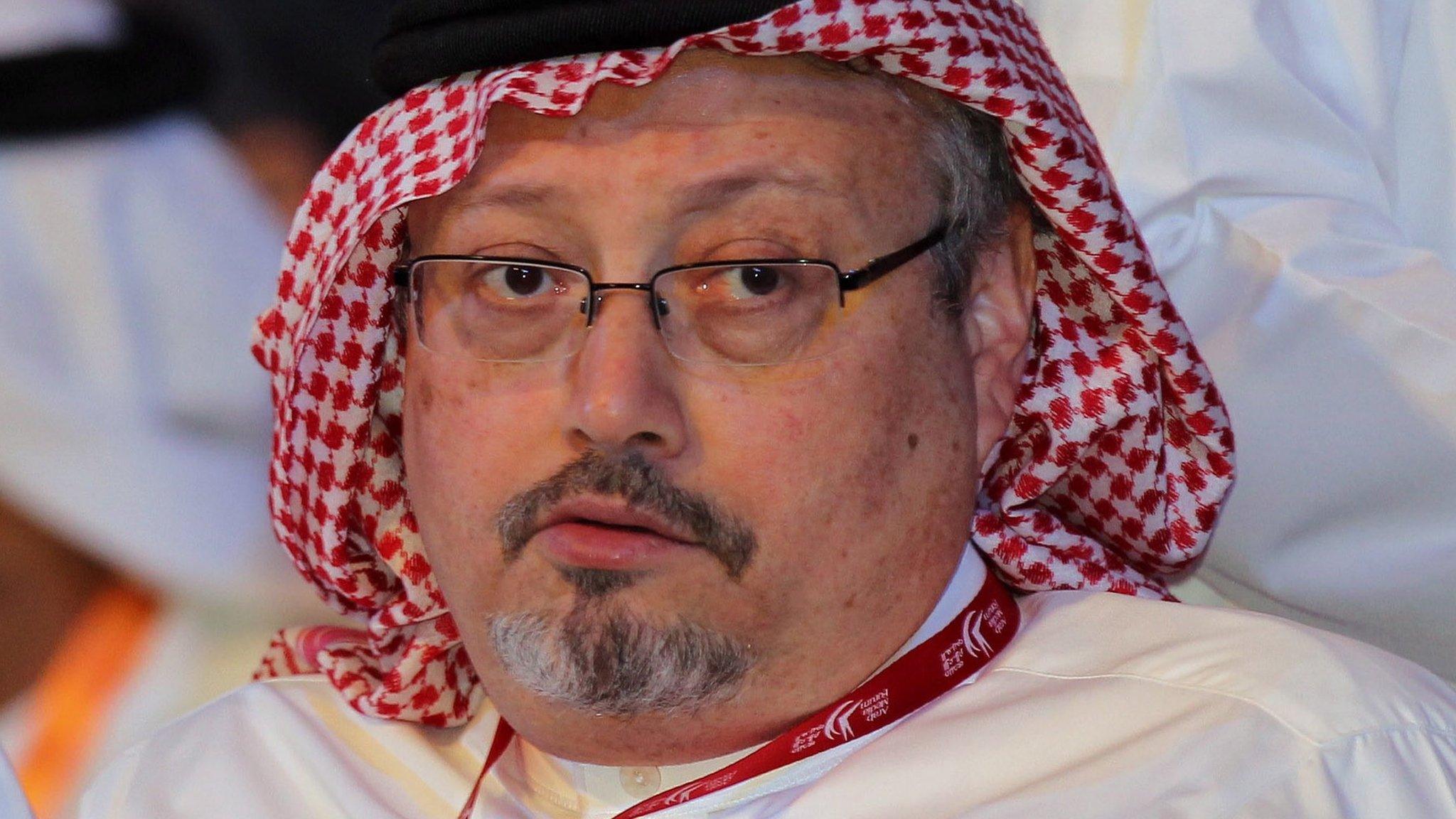
Jamal Khashoggi has not been seen since lunchtime on Tuesday
Fears are growing over the missing Saudi writer Jamal Khashoggi, after Turkish officials said they believed he had been murdered.
Mr Khashoggi, a Saudi national, was last seen visiting the Saudi consulate in Istanbul on Tuesday.
A Turkish official told the BBC that initial investigations indicated he was murdered there.
Saudi Arabia has denied the accusations, saying it is "working to search for him".
Mr Khashoggi has contributed articles to the Washington Post's opinion section. The Post said it would be a "monstrous and unfathomable act", external if he had been killed.
An official of Turkey's ruling AK Party told broadcaster CNN Turk there was concrete evidence in the case, although none has yet been presented.
When was he last seen?
Jamal Khashoggi went to the consulate on Tuesday to obtain a document certifying he had divorced his ex-wife, so that he could marry his Turkish fiancée, Hatice Cengiz.
Ms Cengiz said she waited outside for 11 hours, but he did not come out.
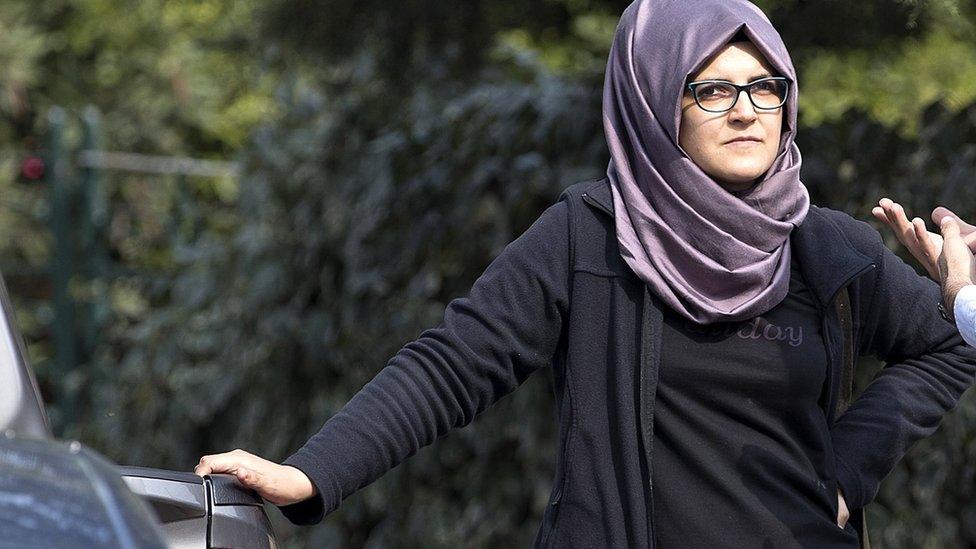
Jamal Khashoggi's fiancée Hatice waited outside the Saudi consulate on Wednesday
She said Mr Khashoggi was required to surrender his mobile phone, which is standard practice in some diplomatic missions. He told her to call an adviser to Turkish President Recep Tayyip Erdogan if he did not return.
"Jamal is not dead. I cannot believe that he has been killed...!" Ms Cengiz wrote in a Twitter post that included a photo of Mr Khashoggi. She added that she was waiting for official confirmation as the allegations circulated.
Allow X content?
This article contains content provided by X. We ask for your permission before anything is loaded, as they may be using cookies and other technologies. You may want to read X’s cookie policy, external and privacy policy, external before accepting. To view this content choose ‘accept and continue’.

What has Turkey said?
Turkish officials said Mr Khashoggi was killed on the premises and his body was then removed.
Investigators said a 15-person team arrived at the consulate on Tuesday, returning to Riyadh the same day.
The head of the Turkish-Arab Media Association, Turan Kislakci, told the New York Times that Turkish police officers providing security for the consulate had checked their security cameras and did not see the journalist leave on foot, external.
But he added that diplomatic cars had been seen moving in and out.
Mr Erdogan was more circumspect, saying on Sunday he remained "positive" and would await the results of an investigation as Turkish authorities continue to look at camera footage and airport arrivals and departures.
What have the Saudis said?
Saudi Arabia said the allegations were baseless. It has allowed reporters into the consulate to show Mr Khashoggi is not there.
On Wednesday, Crown Prince Mohammed bin Salman told Bloomberg News that Turkish authorities were welcome to search the building, external because "we have nothing to hide".
The prince said the Saudis were "very keen to know what happened to him", saying his understanding was that Mr Khashoggi left "after a few minutes or one hour".
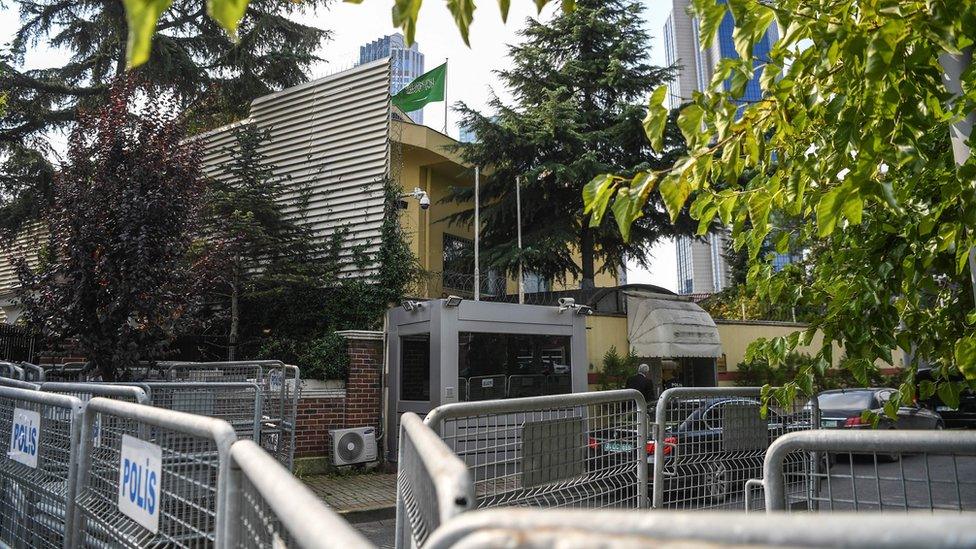
The Saudi consulate said Khashoggi left after completing paperwork
When asked if Mr Khashoggi faced charges in Saudi Arabia, the crown prince said his country would need to know where he was first.

An already-strained relationship
Analysis by the BBC's Mark Lowen, Istanbul
This is a bombshell allegation by Turkey. And while the authorities here are so far not providing evidence to back it up, it's inconceivable that such a claim would have been made without firm grounds. Ankara's relationship with Riyadh is too important to jeopardise on the basis of unsubstantiated rumour.
That relationship is already strained over several issues, including Turkey's support for Qatar in the blockade by Saudi Arabia; its closeness to the Muslim Brotherhood - blacklisted by Riyadh as a terrorist organisation; and its rapprochement with Saudi Arabia's arch-rival Iran. But if proven, the murder of Jamal Khashoggi would be the most serious diplomatic crisis between the two in living memory.
Turkey would hope for backing from its Nato ally, the US. But Saudi Arabia has arguably become Donald Trump's closest ally in the Middle East - and Washington may be reluctant to weigh in against Riyadh at this stage.

Who is Jamal Khashoggi?
He is a high-profile critic of the crown prince. Mr Khashoggi, 59, has more than 1.6 million Twitter followers and has written for the Washington Post opinion section.
The crown prince has unveiled reforms praised by the West while carrying out an apparent crackdown on dissent. Human and women's rights activists, intellectuals and clerics have been arrested - meanwhile, Saudi Arabia is waging a war in Yemen that has triggered a humanitarian crisis.
A former editor of the al-Watan newspaper and a short-lived Saudi TV news channel, Mr Khashoggi was for years seen as close to the Saudi royal family. He served as an adviser to senior Saudi officials.
After several of his friends were arrested, his column was cancelled by the al-Hayat newspaper and he was allegedly warned to stop tweeting, Mr Khashoggi left Saudi Arabia for the US, from where he wrote opinion pieces for the Washington Post and continued to appear on Arab and Western TV channels.
"I have left my home, my family and my job, and I am raising my voice," he wrote in September 2017, external. "To do otherwise would betray those who languish in prison. I can speak when so many cannot."
The Washington Post on Friday blanked out his column in support.
- Published5 October 2018
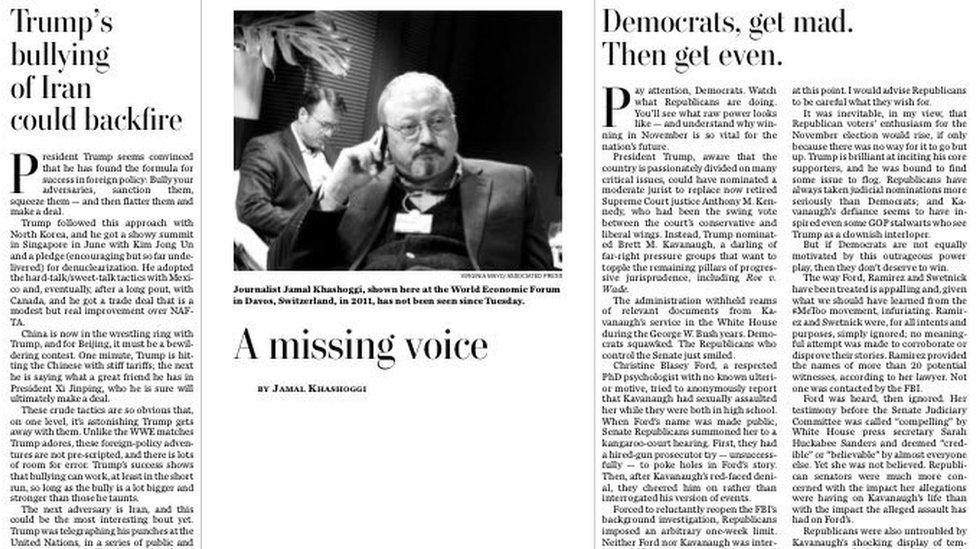
- Published4 October 2018
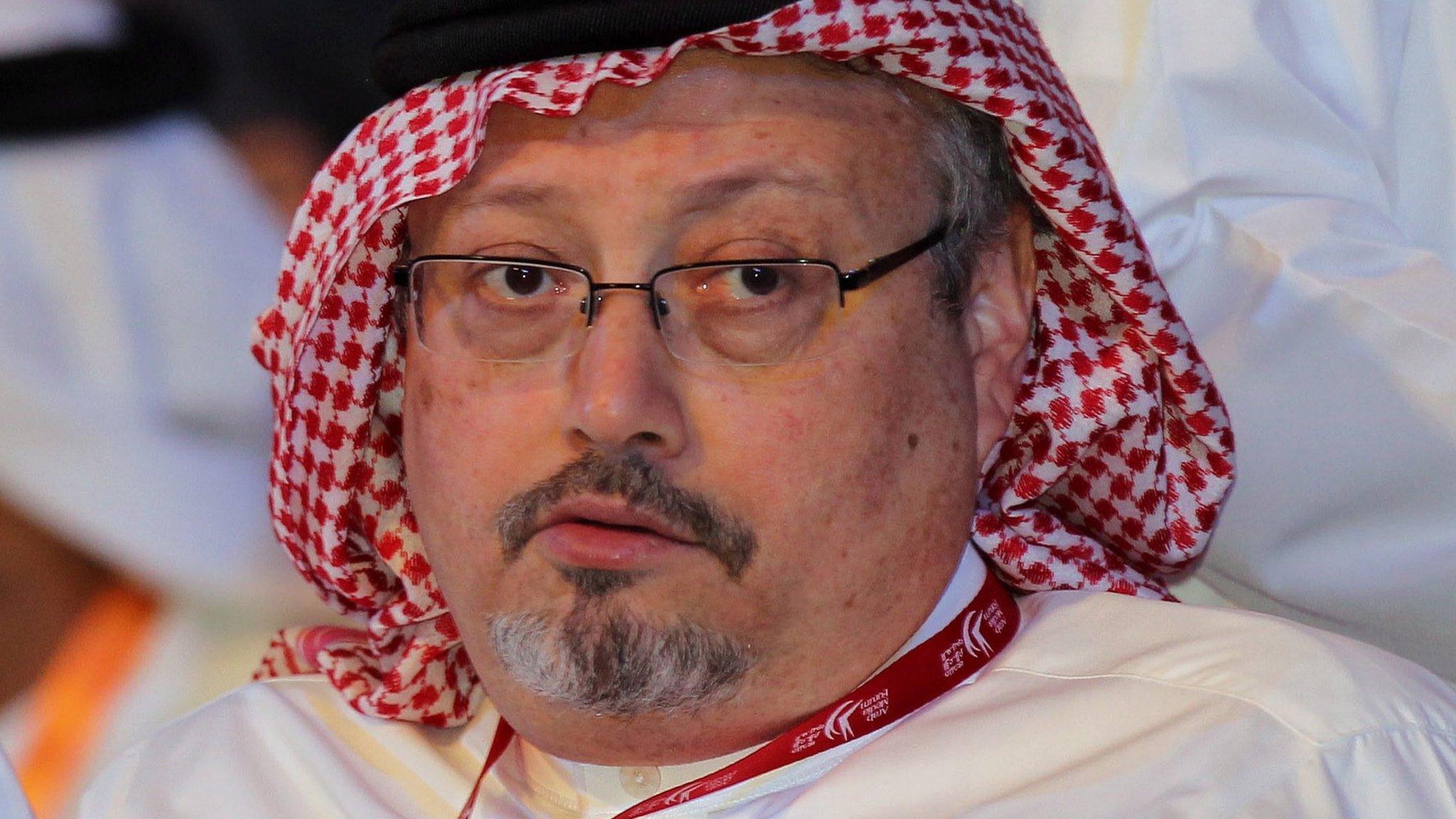
- Published13 November 2017
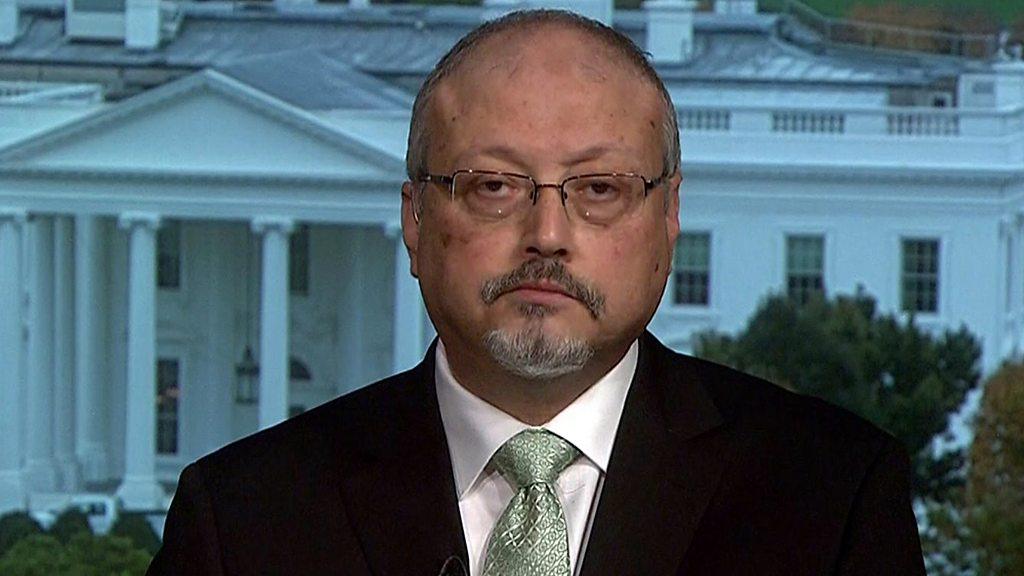
- Published10 September 2018
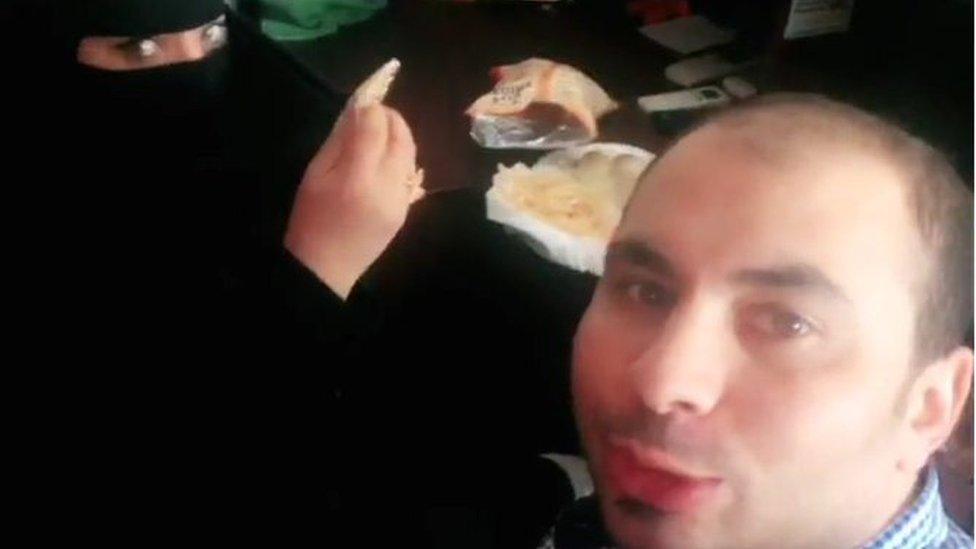
- Published4 September 2018

- Published22 August 2018
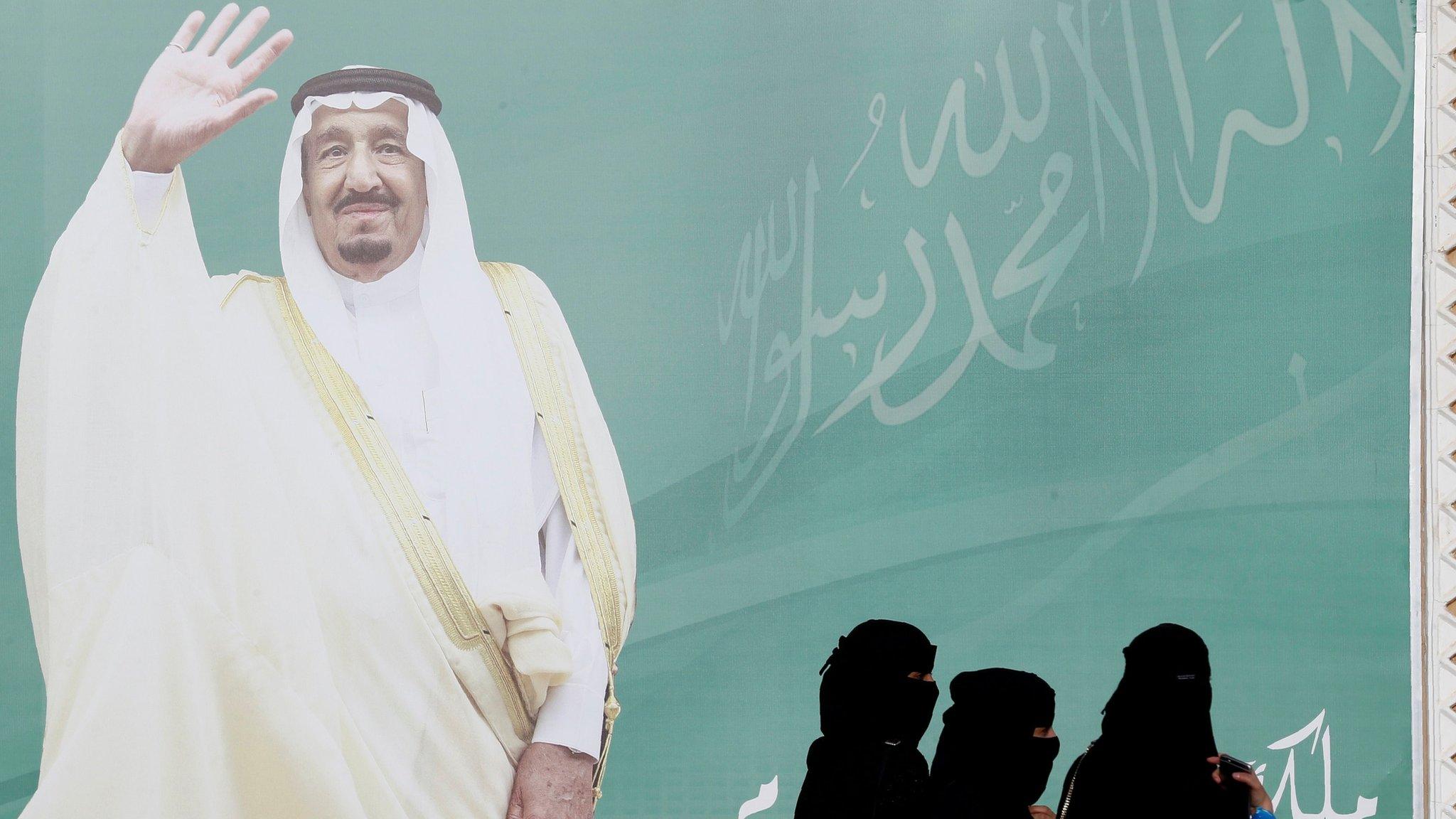
- Published29 August 2023
